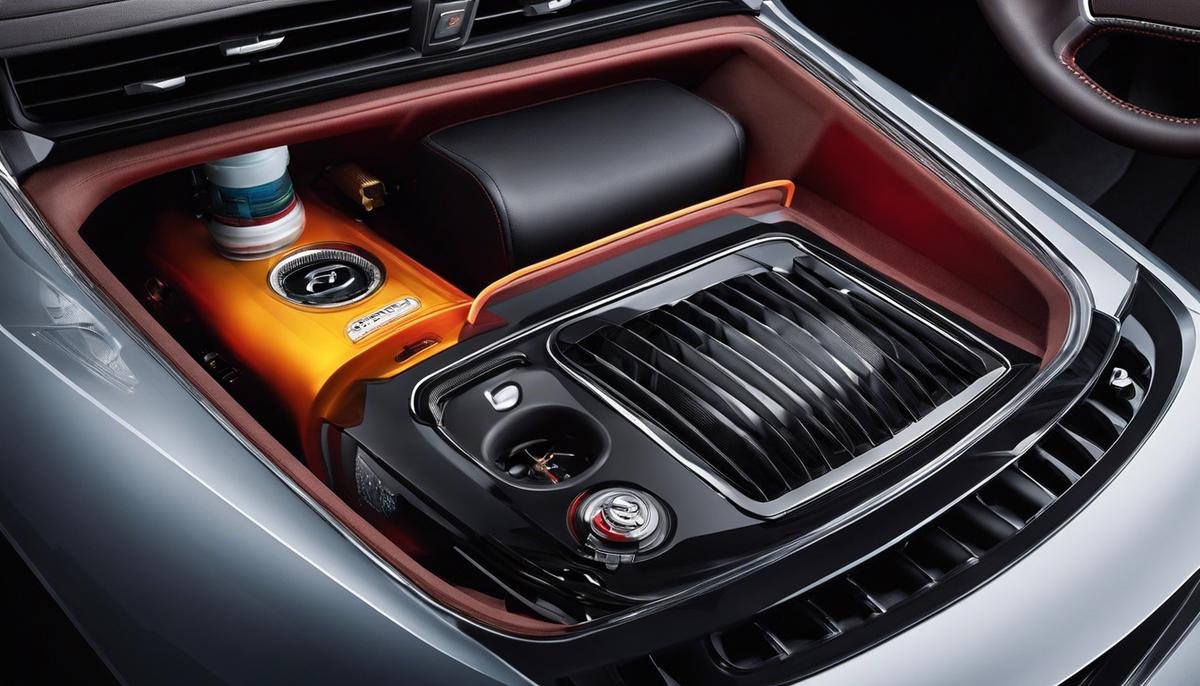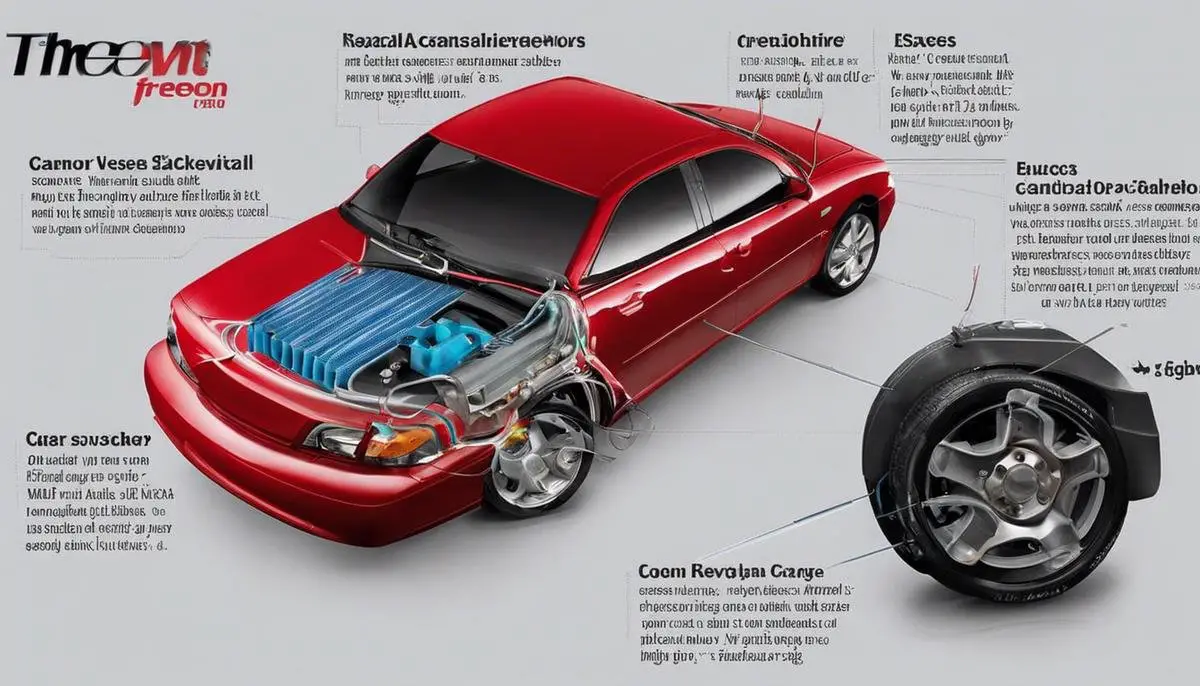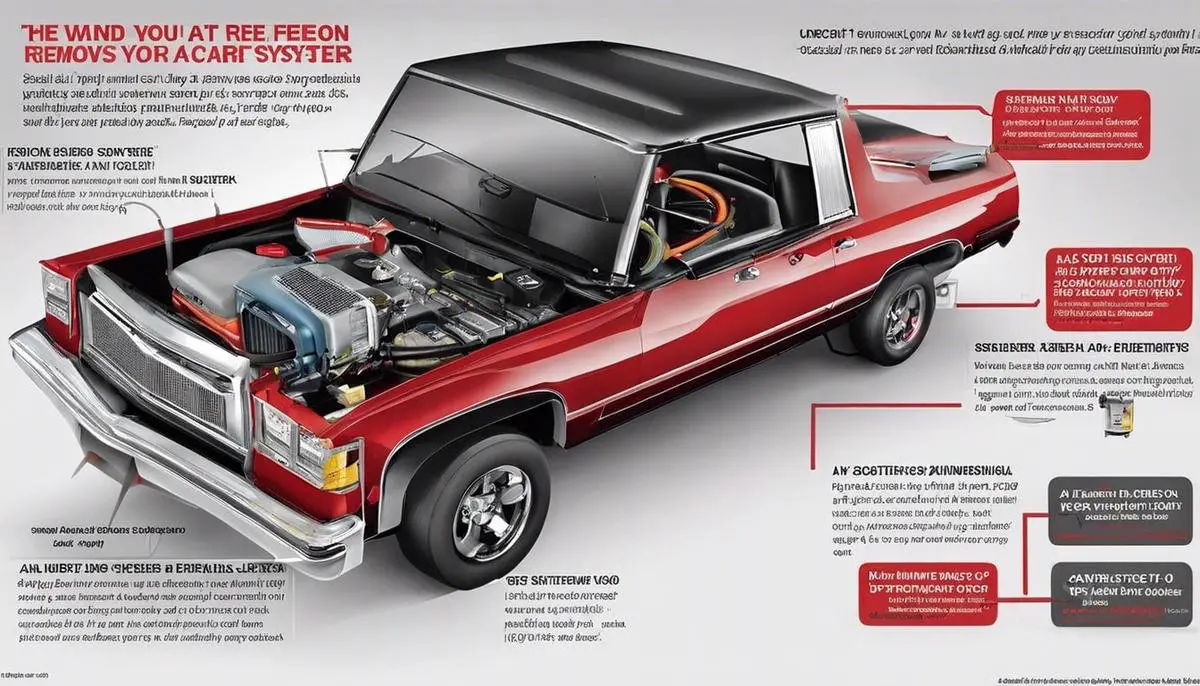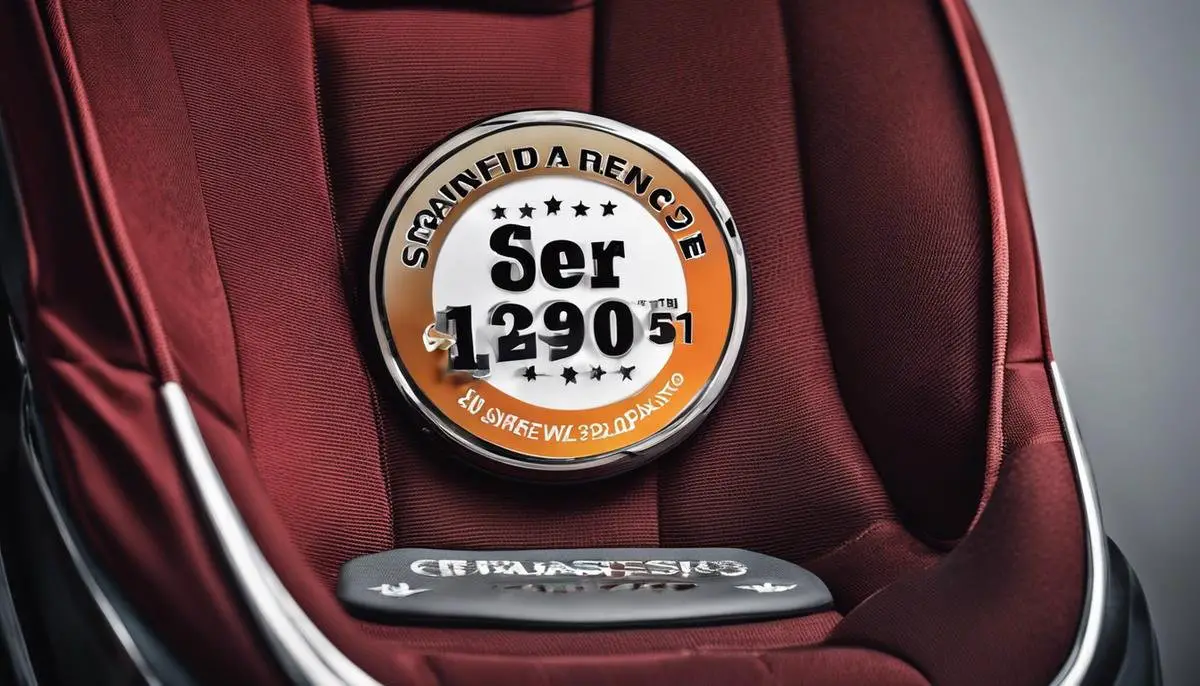
Driving in comfort is no small feat, especially when the sweltering heat of summer proves unbearable. Your car's air conditioning system, powered primarily by the refrigerant known as freon, offers that much-needed relief. However, it's crucial to understand how this system operates and what happens when it has excess freon. Excess freon in your car's air conditioning can lead to inefficiencies and even damage the system. Thus, being able to identify the symptoms of this excess and safely remove it becomes an important skill set for every car owner. This knowledge will not only save you extra costs in damages but also contribute to environmental conservation.
Understanding the Functioning of Car AC
Title: The Integral Role of Freon in a Car's Air Conditioning SystemUnderstanding how a car's air conditioning (AC) system operates is an integral part of tech and automotive know-how. Its functional efficiency lies in an important physical substance: Freon. As the unsung hero behind every cool breeze on a sweltering summer day, the role of Freon in your vehicle's AC is not just essential; it's downright fascinating.
Freon, whose technical term is Chlorodifluoromethane or R-22, is classified as a type of refrigerant, essentially a substance used in various cooling systems, including the AC found in your car. Its primary function? Transferring heat.
When you twist the AC dial to start pumping cool air into your car's cabin, you're not just pulling in cold air from outside. It's a more complex process that features Freon as the star player. Here's how it works:
- The AC system pulls in hot air from the cabin.
- The compressor pressurizes this picked up air, causing it to heat even more.
- This ultra-hot gas is then moved into the condenser where, without getting into thermodynamics, the heat is dissipated, causing the Freon to cool down and condense into a high-pressure liquid.
- This liquid then moves into the receiver-drier, a component that eliminates moisture and safeguards against any potential damage.
- The refrigerant/Freon is then pushed through the expansion valve, dropping the pressure and transforming back into a cool gas.
- This cold Freon is what then makes its way into your car's cabin, dropping the internal temperature to your desired level of comfort.
- The Freon gas absorbs cabin heat and heads back to the compressor, starting the cycle anew.
It's a closed loop, with Freon continuously circulating, changing states from gas to liquid and back again. Inherent in this process is Freon's characteristic ability to absorb and dispel large amounts of heat, making it the perfect candidate for the job.
It's worth noting, however, that Freon isn’t without its controversies. Its potential to deplete the earth’s protective ozone layer if leaked into the environment triggered a shift in AC tech towards more sustainable and eco-friendly refrigerants.
In sum, through its heat transfer capabilities, Freon is an integral component of your car's AC system, absorbing cabin heat, releasing it outside, and delivering cooling comfort—making those hot days more bearable and the ride significantly more enjoyable. Appreciating this advanced tech and its underlying mechanisms can add a new layer of admiration for the marvel of modern-day transportation – the automobile.

Identifying Excess Freon Symptoms
Excess freon in a car's AC system: Spotting the tell-tale signs
Understanding the sophisticated dance of Freon in the AC system's components in our previous discussion sets the stage for the crucial next step: identifying the signs of excess Freon. Like most technological marvels, balance is key in an AC system. Too much Freon can bring on a slew of issues, countering any hopes of a chilled, comfortable drive. Here are some tell-tale signs that signal an overflow of this all-important refrigerant.
-
Inadequate Cooling: A classic symptom of excess Freon is ironically decreased cooling efficiency. More might seem better, but not in this case. Too much Freon can lead to liquid slugging, where the compressor tries to compress liquid Freon instead of gas leading to reduced cooling. If your AC isn’t offering that refreshing blast of cold air it once did, it could be due to too much Freon.
-
Compressor Issues: An AC system's compressor is hardy, but it's not designed to withstand the overbearing load. Compressors are designed to compress gas and not liquid. Hence, excess Freon in the form of liquid can damage the compressor. If you notice odd noises or a failure to start, excess Freon might be the culprit damaging this vital component.
-
Uneven System Pressure: An AC system walks a delicate, well-calibrated tightrope of pressure controls. Excess Freon wreaks havoc on these sensitive pressure dynamics, causing pressure levels to spike, tricking the system into believing it's fully charged and compounding inadequate cooling issues.
-
Frosted Coils: Any frosting or icing on the AC system's components, specifically on the AC’s evaporator coils, is another glaring signal of excess Freon. Freon excess causes temperature drops that lead to frosting, which can obstruct the air’s pathway, reducing the system’s overall efficiency.
-
Increased Energy Consumption: If you're burning through more fuel than usual without an increase in mileage, your AC system's efficiency might be declining due to excess Freon. A hard-working, overburdened AC system has to use extra power, thus leading to an increase in fuel usage.
Knowing these signs of Freon excess empowers every tech-savvy motorist to keep their AC system in optimal condition, ensuring a pleasant drive and preserving their vehicle’s longevity. It's a delicate balancing act, and understanding these tell-tale signs puts you right in the driver’s seat. Remember, swift action can be the difference between a minor adjustment and a complete system overhaul. In the world of car air conditioning, a little knowledge truly does go a long way.

Safely Removing Excess Freon
Let's dive right in and discuss how to safely and effectively remove excess Freon from a car's AC system. Excess Freon can lead to various system malfunctions, so tackling this issue promptly is key. Talking tech, there are a few straightforward steps anyone can follow in order to achieve this.
First and foremost, before starting the removal process, it's crucial to don protective eyewear and gloves. Freon is a hazardous substance that can cause considerable damage upon contact with the skin or eyes.
Next, start the vehicle and set the AC system to the highest setting to circulate the Freon. This will aid in identifying any refrigerant imbalance and thus, give a clear picture of the exact problem.
The equipment needed to extract the excess Freon includes a self-sealing can tap, gauge set, and recovery equipment. Make sure to manually remove the high-pressure hose attached to the gauge set from your vehicle's AC compressor within the engine bay, and attach the self-sealing can tap. This acts as a channel to safely remove Freon.
Following this, connect the recovery machine to both the low and high sides of the AC system, and then to the tap. Once this setup is complete, turn on the recovery machine and let it work its magic, drawing all the excess refrigerant out of the system.
It’s important during this process to closely monitor the gauge readings. As they begin to approach zero, this will signal that the majority of the Freon has been safely evacuated. Keep in mind, though, that the system might still contain a small amount of refrigerant mixed with air.
Lastly, after successful evacuation, detach the recovery machine. Reconnect the hoses back to the AC compressor, ensuring every component is securely reassembled.
With these steps, one can effectively and safely remove excess Freon from a car's AC system. It’s worth noting that it's always advisable to seek help from a certified AC technician if you're unfamiliar with the process. Safety should always come first in any DIY task.
The removal of excess Freon, besides rectifying current issues, also enhances the longevity and operational efficiency of your vehicle. And as a final note, because Freon is recognized as harmful to the environment, always ensure that it is properly disposed of. Up-to-the-minute tech enthusiasts understand the importance of marrying technology with sustainability, forming a synergy where both components thrive, and neither is compromised.

Understanding your car’s air conditioning system, recognizing when there’s excess freon, and knowing how to safely remove it are essential aspects of car maintenance. With this knowledge, you become a responsible and proactive car owner, saving your car’s AC system from damage and reducing unnecessary repair costs. More so, you're taking an active step in preserving our environment by ensuring that freon doesn’t escape into the atmosphere. The key is to approach the process with care, prioritizing safety for both you and the environment. With a careful and well-informed approach, you can keep your car’s air conditioning system in optimal condition, ensuring those hot summer drives remain pleasantly cool.
Image Source: https://writio.com/



